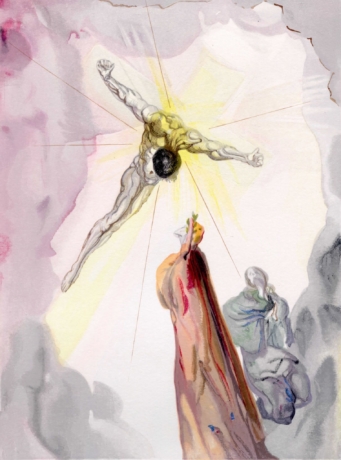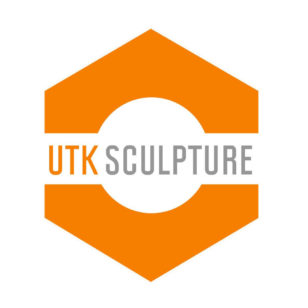
Exhibitions
SALVADOR DALÍ AND THE DIVINE COMEDY, PART III: PARADISE
Reece Museum (ETSU) / 363 Stout Dr., Johnson City, TN April 3, 2018 - June 15, 2018
Salvador Dalí
Salvador Dalí and the Divine Comedy, Part III: Paradise, April 3-June 15, 2018, is the final installment of a three-year Reece Museum celebration of Dalí’s series based on Dante Alighieri’s narrative poem masterpiece. A panel discussion and opening reception was held on Thursday, April 5, from 5-8 p.m. The panel discussion, entitled Dalí’s Divine Illustrations, featured guest of honor and donor of the Dalí prints Dr. Frank Barham; ETSU Literature and Language Professor Dr. Josh Reid; and ETSU Adjunct Professor in the Department of Art and Design Sam Boven.
On Thursday, April 12 from 12 noon to 1 p.m., Reippe Moore, a student in the Department of Literature and Language, recited three original poems inspired by Dali’s illustrations. Entitled Dante to Dali: Ekphrastic Poetry, Moore has written one poem on each of the three parts of Dante’s Divine Comedy: “Inferno,” “Purgatory,” and “Paradise.”
“Paradise,” the third section (or canticle) of Dante Alighieri’s 14th-century poem, is an allegorical telling of Dante as he ascends through the nine celestial spheres of Paradise or Heaven. Depicted as a series of spheres surrounding the Earth, “Paradise” consists of the Moon, Mercury, Venus, the Sun, Mars, Jupiter, Saturn, the Fixed Stars, the Primum Mobile, and the Empyrean. As Dante ascends through the various spheres, he converses with great saints including Saint Peter, John, and even Mary, the mother of Jesus.
The first seven spheres of “Paradise” deal with the cardinal virtues of Prudence, Fortitude, Justice, and Temperance. The eighth sphere, the Fixed Stars, contains the souls of those who achieve the theological virtues of faith, hope, and love. In classical, medieval, and Renaissance astronomy, Primum Mobile, is the furthest or outermost moving sphere in the geocentric model of the universe. This sphere holds the angels who have never been tainted by original sin. Finally, the Empyrean or tenth sphere, is a region beyond physical existence and contains the very essence of God.
In 2016, the Reece Museum displayed Salvador Dalí and the Divine Comedy Part I: Inferno and in the spring of 2017, the second installment, Part II: Purgatory. The two previous sections, “Inferno” and “Purgatory,” are based on various classifications of sin. That said, “Purgatory,” and “Paradise” each contains 33 subsections (or cantos) while “Inferno,” the first section (or canticle), contains an additional canto to serve as an introduction to the entire poem.
Between 2014 and 2017, Dr. Frank Barham donated 96 of the 100 prints of the Divine Comedy to ETSU. He has since donated the additional four prints to complete the “Paradise” section. A graduate of ETSU, Dr. Barham earned his medical degree from the College of Medicine at the University of Tennessee in Memphis. After practicing medicine for some time, he then earned a master’s degree in health services administration from St. Francis University and worked as a hospital administrator. Later, he earned a master’s degree in medical humanities, majoring in bioethics, at Drew University where he also studied for a Doctor of Letters degree in ethics.
Additionally, Barham is the author of a number of books: Saving the World One Dog at a Time; Puppy Love; The Religious Right is Wrong: The Ethics of Religion; and a novel, Milk and Murder, to name a few. Simultaneously, he expanded his interests to sculpture and found representation at 14 commercial galleries. His sculptures are also part of the collections at the Fine Arts Museum of Long Island and the New Orleans Museum of Fine Art. Barham, who now lives in Center City, Philadelphia, sought a permanent home for his Dalí works when the time came to downsize his collection. He decided East Tennessee State University’s Reece Museum seemed like the perfect place because of his personal ties to the university and the region.
The Reece Museum is located on the campus of East Tennessee State University and is free and open to the public. For more information about the exhibition or events, please call 423-439-4392 or visit www.etsu.edu/reece

